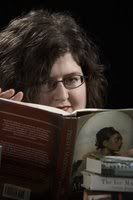 Knitting America: A Glorious Heritage from Warm Socks to High Art celebrates the craft and its history in America within a historical context from the colonial period to the present. Knitters are often curious about knitters and, in the past, little information has been available on knitting in America. Susan Strawn provides a fully detailed answer, exploring knitting from historical, cultural and artistic viewpoints. As Melanie Falick states in her introduction; “…Susan has placed the history of knitting within the context of American history, so we can clearly see how knitting is intertwined with such subjects as geography, migration, politics, economics, female emancipation, and evolving social mores.”
Knitting America: A Glorious Heritage from Warm Socks to High Art celebrates the craft and its history in America within a historical context from the colonial period to the present. Knitters are often curious about knitters and, in the past, little information has been available on knitting in America. Susan Strawn provides a fully detailed answer, exploring knitting from historical, cultural and artistic viewpoints. As Melanie Falick states in her introduction; “…Susan has placed the history of knitting within the context of American history, so we can clearly see how knitting is intertwined with such subjects as geography, migration, politics, economics, female emancipation, and evolving social mores.” The earliest knitters in America were probably taught by the Spanish who introduced desert “churra” sheep to the New World. By early 1600s, other European (knitting) nations had arrived along the Atlantic seaboard and by the early 1700s girls were recorded working on their spinning and knitting. The first half of Knitting America covers knitting from colonial times to the end of the 19th century. The second half looks at knitting from the beginning of the 20th century to modern times. Interspersed throughout are 20 historical knitting patterns including: an 1850s “necktie” scarf; fancy silk mittens from 1880s; an 1890s Victorian miser’s purse; Civil War era Union Army socks; and a World War II U.S. Navy Iceland sweater.
Lavishly illustrated with more than 300 historical photographs, illustrations, advertisements, vintage pattern booklets and vintage garments selected from museum collections, Strawn has created a truly fascinating volume. Knitting America is the perfect coffee table book for lovers of fiber arts, as well as anyone interested in women’s history in the United States of America.
Sample Pattern: Imogene Scarf
ISBN10: 0760326215
ISBN13: 9780760326213
Hardcover
208 Pages
Publisher: Voyageur Press
Publication Date: October 15, 2007
tags: books book reviews knitting history of knitting Susan Strawn


